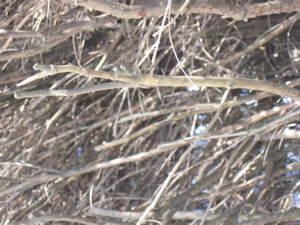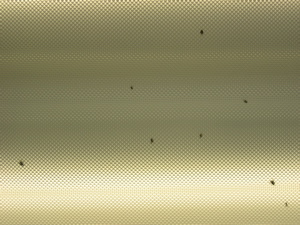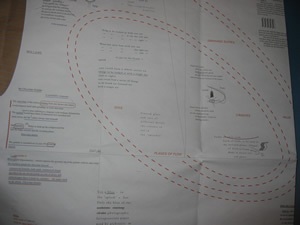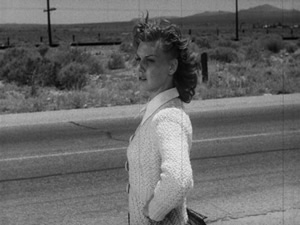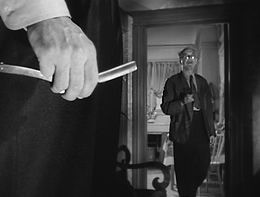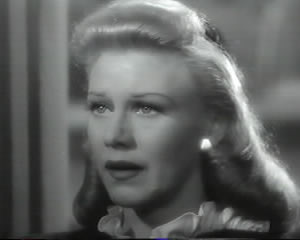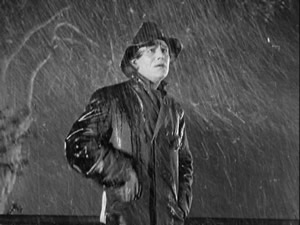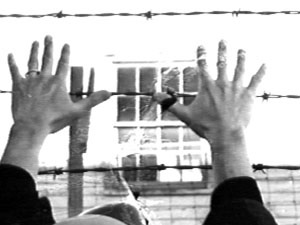
"It is very likely that nearly every one has been very nearly certain that something that is interesting is interesting them" — Gertrude Stein
27 February — Sunday — permalink• Jargon acquisition: "[M]ental spaces are small conceptual packets constructed as we think and talk, for purposes of local understanding and action. They are very partial assemblies containing elements, structured by frames and cognitive models.... [O]ur hypothesis is that, in terms of processing, elements in mental spaces correspond to activated neuronal assemblies and linking between elements corresponds to some kind of neurobiological binding, such as co-activation. On this view, mental spaces operate in working memory but are built up partly by activating structures available from long-term memory. Mental spaces are interconnected in working memory, can be modified dynamically as thought and discourse unfold, and can be used generally to model dynamic mappings in thought and language" (Gilles Fauconnier and Mark Turner, The Way We Think [2002] 102).
• Frames are "entrenched" spaces, ready for "all-at-once" activation. Networks are entrenched frames, likewise available for global activation and application. "Indeed, much of our thinking consists of activating entrenched integration networks for dealing with present subjects" (103).
• Much appreciated contributions to inframince and zip studies at Konvolut M. And the remarks on "Imaginary Lover" and "Ebony Eyes" ("Had to ask someone who each was by, but could sing along with a dismaying proportion of both") connect to....
• Unlidded ear: here. Just knowing these exist makes me hear differently. One use to which I'd like to put them: cataloging the canned soundtracks imposed in most enclosed commercial environments. Illustration of the banal fact that by far the majority of the songs I know by heart I neither like nor have ever (even once) elected to hear.
• Rebutting Duchamp's axiom in the 1914 Box? "One can look at seeing; / one can't hear hearing" ("On peut regarder voir; / On ne peut pas entendre entendre").
• Situation: prevented from traveling anywhere during a two-week break from teaching, I am prevented, même, from traveling to Philadelphia to refresh my memory of the Arensberg Collection. So I decide (without formulating it as a decision—until now) to see Duchamp's work wheresoever I chance upon it. Hence:
• I'm speaking by phone to a friend in mourning for her recently deceased husband. When she mentions that the exercise prescribed her, in part to ward off depression, includes riding a stationary bicycle, and that she invariably cries while doing so, I see —avoir l'apprenti dans le soleil— and quickly "run the blend" (Fauconnier-Turner): the slope is mourning, and she is the apprentice still at the beginning of an agonizing climb.
• Performing the very tight three-point turn my driveway (especially in winter) requires of me, the view through the rearview mirror of the dead branches I need to not back into is also a glimpse (cocked ninety degrees) of the twigs within which the female figure is implausibly nestled in Etant Donnés.
• Need, demand, and desire: Does "Imaginary Lover" conform even more closely to Lacanian theory than "Prove My Love" by the Violent Femmes? Fabricate an aural equivalent of The Wilson-Lincoln effect to explore this question further? (Example of an intellectual project for which there is not need, demand, or desire.)
• Jonathan Lethem's "The Beards: An Adolescence in Disguise" (New Yorker 28 February 2005: 62-69). Of Frick's part in "The Heavenly Music Corporation": "His thinking, audible as he tested the surf of Eno's synthesizer, was like a morality only I understood" (63). • "Hence my rage at Stanley Kubrick, Don DeLillo, Jean-Luc Godard, and Talking Heads. The artists who seemed to promise the most were the ones who'd created art that stirred me while seeming to absent themselves from emotional risk—so these were the ones that were capable of failing my needs most violently. It was as though in their coolness these artists had sensed my oversized needs and turned away, flinching from what I'd ask them to feel on my behalf" (67). • By contrast: "Dylan and Dick created bodies of work so contradictory and erratic that they never seemed to have promised me perfection, so they could never disappoint me" (68). • "There's a death wish in reducing life to watching one's fingers twitch on the alphabet" (69).
• Today I'm seeing this
more along the lines of the "nine shots" (less one) at the Large Glass. Oddly, I count only eight of the "shots" in several other online images (that I don't have permission to link directly to).
25 February — Friday
• Aesthetico-oneiric hazards: before sleep, I read about and meditate on le soigneur de gravité (gravity tender), another unrealized element of the Large Glass. In dream, toward three a.m., I'm thrown from the bed to the floor by a force applied to the precise point on my body (left chest, around the nipple) where I'm most displaceable.
• Annotated hazard: Jean Suquet | "From the Splash to the Flash, with the best wishes of Le Soigneur de Gravité: The Large Glass, a Guided Tour" | 1992 | Tout Fait: Marcel Duchamp Studies Online
• Open to chance: Something very like the breast / nipple from "Priére de Toucher" is included in Matta's "Altar to the Juggler of Gravity" (1947), constructed from instructions provided by Duchamp. In Pontus Hullen's Marcel Duchamp:Work and Life, "Priére" happens to be shown next to "Torture-morte," the work of Duchamp's that most occupied my thoughts yesterday.
• Open to chance (cont'd): at the top of a visiting fiction writer's cv, the title "A New Kind of Gravity."
• Why I thought often of "Torture-morte" yesteday: In the light-wells of an institutional building, a stippled semi-opaque plexiglass is used to shade three rows of long flourescent bulbs. Looking up at them, say during a reading, one notices numerous small black shapes distributed like inverse stars against the illuminated panel. These inverted constellations are composed of dead flies, with an occasional moonlike moth thrown in. Each light-well is thus an insect cemetery, and in a room with twelve such wells, several hundred small corpses rest above one's head.
• Inframince (visible): degree by which rooms lit in the manner described above will be brighter after the dead insects are removed is, I should imagine, inframince.
• Inframince (audible): were the structure of said institutional building to be jolted somehow, the noise made by the fly wings vibrating against the plexiglass would make an inframince contribution to the overall racket.
23 February — Wednesday
• Usually I wake up with a song in my head, but this morning it was a shape: the tire-bouchon toboggan run Duchamp never did achieve in the space to the right of the chocolate grinder and below the oculist witnesses in the Large Glass (see "completed" work of 1965). Organic analog: the Maine delicacy, fiddleheads. Organic/aesthetic analog (thought of later): Smithson's spiral jetty. Duchampian shadow cast: the distended corkscrew in Tu M'.
• Discriminating among smiles: approaching vehicle's windshield, inspecting from passenger's side of the hood the driver's side wiper—smile produced by absence of parking ticket.
• To be open to chance, as others are open for business.
• Inframince (cont'd): marry a person called "Teeny." Shade by which the mot juste ("teensy") has been missed is inframince.
• Delays not in glass: Harold Russell's prosthetic arms in Best Years of Our Lives (1946) are almost identical to the one supplied my elementary school classmate Regina a full twenty-five years later.
• The cemetery of airplane shells Dana Andrews visits on his way out of town.
• Semantic mensuration: distance between Duchamp's "même" and the internet's "meme." By analogy to idio-ideo at Hotel Point: the même meme?
• Google returns for "mensuration" (115,000) and for the word it thinks I meant to type: "menstruation" (1,450,000). Wordcount rankings: "menstruation" (24,248 of 86,800), "mensuration" (not archived).
• Weather Band: for about seventy-two hours, light snow—nicely spaced flakes, no facility for accumulating—makes for visible air. Imagining it as an ordinary atmosphere, rather than a fluke.
• Delays not in glass: watching Best Years last night, I notice that Myrna Loy has become one of those actors whose every gesture and utterance absorbs and delights me. The "aha-erlebnis" comes nearly six months after its probable cause: TCM's September focus on Loy's films.
• Tire-bouchon (cont'd): A fiction writer on campus reads his story about base jumping. At one point the protagonist "spirals" down from the top of the St. Louis Arch (three seconds of free fall, twenty seconds of chute). A while later, a squirrel "spirals" up a tree trunk.
• Arbitrariness of the sign: The designers of an e-mail application decide they need a non-linguistic sonic indicator for "no mail." They go with a metallic scraping noise. Am I to think I've opened a metal mailbox, only to find it empty? But doesn't the door open just as scrapingly, rustedly, crushingly hopelessly, upon epistolary bounty?
• Oneiric suspense: In a dream, a friend who does, when angered, sometimes walk away from a group and not return, sets off on what should be a brief errand, saying as he goes, "I've been known to walk off...."
• Interior burn (how my consciousness acquires music lately): First step: modicum of faith in the mp3 bloggers (download to desktop). Second step: independent evaluation (listen in iTunes). Third step: selection to "next comp" playlist (listening and sequencing; burning to cd). Fourth step: listen through better speakers, at different volumes, in different situations (home, car). Fifth step: interiorization of song (wake up with it, start singing it while walking).
• Observation: Interior "burning" never duplicates the sequence of the cd. Hence, factor in something like "synaptic shuffle"?
• Tracks of latest comp reproduced "spontaneously" in some situation or another: This Isn't It by Giant Drag (for reasons adduced below); (2) Hateful by The Clash, much of the day Monday, for the guitar riff and a dose of delegated speech (a pop song is a fulfilment of a wish); (3) Baby, It's Cold Outside by Deschanel and Redbone (in admiration of Redbone's voice and the altogether illicit intimacy of the duet); (4) Whiskey and Gin by Johnny Ray (in admiration of Ray's tremulous voice and appreciation of the speaker's candor in admitting that his sexual satisfaction depends upon his lover remaining an alchoholic).
• Then there are the burns one comes to regret. Not that anything Stritch does can really bring displeasure, but I did recite "Zip" to my own and others' distraction last fall. Nice, then, to see a couplet of it come to Eeksy-Peeksy's rescue.
• Silliman awaits the polarizing messiah. My secular preference is for more minds "unintimidated by multiplicity" (H.D.).
22 February — Tuesday
§ The Best Years of Our Lives | Dir. William Wyler, 1946 | 172min TCM | IMDb
20 February — Sunday
• Were the curtains to the left opened, the laptop screen would be engulfed in glare.
• Mina Loy morning: Paris 1902-1903. Art school and the mysterious impregnation. "Virgins Plus Curtains Minus Dots."
• Browsed last night in a gridded composition book from 1987 (warped slightly by careless storage) with notes on Duchamp lectures by Sheldon Nodelman and, when his mother's death prevented him from teaching, Allan Kaprow, running from the back of the volume to the middle, and notes on Freud and Lacan from the front to the middle. The 180 degree rotations of the left-handed.
• The Giant Drag singer's intonation and handling of "the turn" when she comes to the passage: "Love, love, love — this isn't it." If the song isn't mediocre, it will be because she's pulled it off.
• An insurance agent's idea of digital photography: shoot every single object in the house, one by one. Begin with the books? the refrigerator?
• "Both my lovers are broke / Three broke lovers" (Lee Ann Brown, probably misremembered).
• The Duchampian inframince: "The warmth of a seat (which has just been left) is infra-thin." So too the noise generated by walking in velvet trousers.
• Private reference: the mention of velvet trousers calls to mind Jackson Mac Low's black pair in Amiens in 1999. Intimations of a dandyism we'd not previously suspected in him.
• Filament connecting R. Mutt to "und wir waren sehr arm." And the inexhaustible pleasure of imitating the Nina Hagen of "Born in Xixax." Memory fragment (borrowed) of a record signing in Seal Beach: "Nina, look up." "How can I look up, when I want to look down?"
• Something about Blithe Danner, Martha Plimpton.
• Delay not in glass: visiting the home of X, one deduces from a variety of clues that his lover is probably betraying him sexually; delay between this observation (kept to oneself) and confirmation of fact (roughly ten weeks).
• Just a few minutes into the film, before anything much has been established, the protagonist and narrator of Detour finds his way into a roadside diner, where a talkative stranger offers him a ride north. Rebuffed, the driver gets change for a dime and drops his nickel into the jukebox, selecting just the song that will trigger the flashback that will be the film. For me, though, the scene harbors a small, self-contained satisfaction: I've been wondering what a jukebox might look like, circa the mid-1940s, ever since I began talking and writing about John Cage's anecdote of a glamorously self-mutilating one. The movie has barely started and Edgar G. Ulmer—with his two to one shooting ratio, six day production window, and measly thirty grand—has already shown me something I've longed to see.
• Trying to get the cell phone to recognize a voice command, one adopts the harsh tone associated with telling a recalcitrant child something "for the last time." Unimaginable (for me, so far) to attempt, instead, a sweeter, more seductive tone. Resolution: practice politeness with cyborgs, même.
• Joshua Clover, writing about a movie I've been boorishly unable to appreciate, teaches me that the opposite of a slave name is a "liberonym" (footnote 3 of this).
February Pop Comp — courtesy of the invaluable mp3 blogs
The New Year - Death Cab for Cutie | Ralome - Plaid | Baby, It's Cold Outside - Zooey Deschanel and Leon Redbone | Whiskey & Gin - Johnny Ray | New Slang - The Shins | Be Still My Heart - The Postal Service | Roda - Gilberto Gil | Home - Lou Barlow | A Nervous Tic Motion of the Head to the Left - Andrew Bird | This Isn't It - Giant Drag | One Step Ahead - Aretha Franklin | Just Kissed My Baby - The Meters | Keeper of the Castle - The Four Tops | Hateful - The Clash | I Just Need Myself - The Cure | The Answer - Bloc Party | No Heathen Featuring Wicked Act (Blacksmith Mix ) - DJ/Rupture | M.I.A - M.I.A | Braking (Hushed) - Quantazelle | Spring's Arrival (The Express Rising Remix) - Piano Overlord
February 18 — Friday
§ I Shot Andy Warhol | Dir. Mary Harron, 1996 | 103min | IMDb
§ Spanking the Monkey | Dir. David O. Russell, 1994 | 100min Cinemax | IMDb
February 17 — Thursday
§ Detour | Dir. Edgar G. Ulmer, 1945 | 67min TCM | IMDb | Senses of Cinema profile of Ulmer by Erik Ulman
February 12 — Saturday
§ Total Eclipse | Dir. Agnieszka Holland, 1995 | 111min DVD | IMDb
February 11 — Friday
§ Swimming to Cambodia | Dir. Jonathan Demme, 1987 | 85min Trio | IMDb
February 10 — Thursday
§ Coal Miner's Daughter | Dir. Michael Apted, 1980 | 125min TCM | IMDb
January 29 — Saturday
§ Spellbound | Dir. Alfred Hitchcock, 1945 | 111min TCM | IMDb
January 26 — Wednesday
§ Tender Comrade | Dir. Edward Dmytryk, 1943 | 102min TCM | IMDb
In his 1944 Partisan Review essay on "pseudo-folk" art (the one poet Robert Duncan responds to in "The Homosexual in Society"), James Agee refers to Tender Comrade as "the most richly dreadful and fascinating of recent films." In an energetically overwritten paragraph from a Nation omnibus review of the same year, he lays down the (mixed up) terms of his disapproval: "The astonishing Tender Comrade is one in the eye for widows, with plenty for mere war wives too, and nothing I can imagine for anyone else except the hardiest misogynists, for whom it should provide the biggest treat and most satisfying textbook in years." Intolerant of the “highest-salaried tender comrade," Ginger Rogers ("hilt-deep in her specialty as a sort of female Henry Fonda"), Agee finds himself suffocated by the film's "cooperative, sorority-house democracy" and calls Rogers's (indeed insufferable) closing speech ("which lasts twenty-four hours and five minutes by my watch") "one of the most nauseating things I have ever sat through." Sixty years (and a HUAC trial for both writer and director) later, this all reads as overreaction to what is a self-evidently imperfect, but still a stranger and more likable film than Agee can quite admit (though his ambivalence can be glimpsed in the adjectives he applies to it).
January 24 — Monday
§ The Ace of Hearts | Dir. Wallace Worsley, 1921 | 75min TCM | IMDb | Members of an anarchist cell draw cards for the privilege of assassinating "the one who has lived too long." The ace goes to Lon Chaney's rival for the love of Lilith—and with it goes Lilith, for whom man and Cause are now united in one flesh. But having tasted said flesh, neither Lilith nor her noble hitman care to go through with the plot. Chaney's solution to the problem is elegant and definitive. Below Chaney takes a pathetic fallacy drenching as his former comrades get it on upstairs.
January 21 — Friday
§ The Pawnbroker | Dir. Sidney Lumet, 1964 |116min TCM | IMDb | First viewing of this stark, noisy, raw, and utterly astonishing film. The outstretched hands below belong to one in a long row of women having their wedding rings harvested by concentration camp guards, an image that flashes into the pawnbroker's mind when a young pregnant woman comes to hock her own ring. Each such flashback works to link the camps to the U.S. ghetto through the shared terms of misogyny, prostitution, and brute domination.
January 10 — Monday
§ Beginning another shift at my third factory: teaching a grad seminar, a class on American poetry, and the foundations of literary analysis. And the New Writing Series looks to be about set.
nb archive
June 1-15, 2003 • June 16-30, 2003 • July 1-15, 2003 • July 16-31, 2003 • August 2003 • September 2003 • October - December 2003 • January - February 2004 • March - June 2004 • July - December 2004

